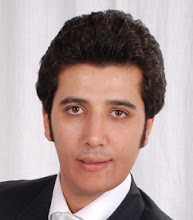To Prevent War

Just two months after 72 Iranian pro-peace personalities signed a peace drive, the founders of the National Peace Council held their second meeting. At the meeting, the activists ratified the charter; the general assembly voted its executive operatives and inspectors, thus officially launching the group.
Fifteen individuals were elected from the members of the general assembly to act as the executive board which is mandated to run the group’s affairs, except those identified by the general assembly. Hashem Aghajari, Babak Ahmadi, Habibollah Peyman, Jalal Jalalizadeh, Taghi Rahmani, Issa Saharkhiz, Abdoll-FatahSoltani, Hossein Shah-Hosseini, Seyed-Ali Salehi, Keyvan Samimi, Abdollah Momeni, Hossein Mojahed, Narges Mohammadi, Baizid Mardookhi, and Fatemeh Motamed-Aria were elected as the members of the executive board, while five others, Hossein Akbari, Mohammad Sadegh-Rabani, Kurosh Zaeem, Soraya Aziz-Panah, and Parvin Kahzadi were elected as substitute members.
In addition, Ezatollah Sahabi, Abbas Abdi and Dawood Hermidas-Bavand were elected as the principal inspectors of the organization, while Mohammad Khaksari, and Jhila Shariatpanahi were elected as substitute inspectors.
Issa Saharkhiz, a regular contributor to Rooz, and now a member of the executive board of the Peace Council said that members to the group was open to anyone, regardless of their political leanings, adding, “Anyone who is concerned about peace and is interested in preventing the country from getting into one, can become a member.”
Last February as tensions between the US and Iran reached levels that had produced fears that military action against Iran was a real possibility, Shirin Ebadi, Iran’s only Nobel laureate announced the creation of a temporary peace committee and called on all Iranian to participate in efforts to prevent such a war.
The Peace Council has set four goals for itself: the creation and strengthening of the foundations for peace, human rights and continues development in Iran; preventing any military, terrorist and violent action against Iran; activities to remove any sanctions against Iran and prevent their strengthening, and; ending the atmosphere of ‘no war and no peace’ that is in air.






